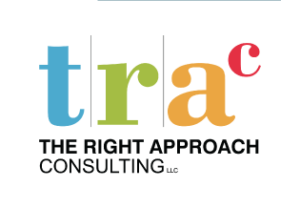Capturing Tribal Knowledge
“It’s all to do with the training: you can do a lot if you’re properly trained.”Elizabeth II, Queen of Great Britain and Northern Ireland made this salient proclamation over 50 years ago. What has held true over the ages is not a secret; people perform better when properly trained.
Tribal Knowledge is Key to QMS
Walk the Walk
Training is often an afterthought in many organizations, and the longer a company has been in business; the more this seems to apply. While assessing literally over 1.000 companies over the past couple of decades, it has been amazing to observe that the biggest offenders of this are the companies that overuse the sound bite “Our most important asset is our people”. When you really dig into the process and peel back the onion, it is clear that their commitment to training is not commensurate with that statement. No matter what you call it: training, coaching, mentoring, etc., what we are really talking about is turning people into a competitive advantage.
A keystone of a world-class organization is the depth and breadth of the training program. Training can be defined as learning that is provided in order to improve performance on the present job. A well-managed program in a printed circuit board fabricator can mean the difference between average and outstanding, performance. Of course this applies to every industry, but with up to 60 different possible processes combined with the degree of difficulty required to produce today’s printed circuit boards, it takes on exponential importance.
Typical Scenario
The following conversation has been repeated many times, and may sound familiar:
Supplier: “This is Larry; he is our best plater and runs this department.”
Customer: “Can I see his training file documenting that Larry is a certified operator for plating?”
Supplier: “Uh, we don’t really have a certified operator program, but Larry IS the trainer for plating and every operator is trained by Larry. He could make up every one of these baths from scratch.”
Customer: “How do you know when an operator is ready to work on his or her own?
Supplier: Larry says so. He also personally reviews and approves every single job that is released from plating to assure quality.”
Customer: “What happens if one of my jobs is scheduled to be plated when Larry is on vacation or sick?”
Supplier: (Silence)
Customer: “Exactly.”
In the above scenario both the company and its employees tend to view training negatively, even insulting; some form of remedial action. This perception couldn’t be further from the truth! One of the greatest advantages of training in this situation is to capture the tribal knowledgeof the highly-skilled workforce. What I mean by tribal knowledge is the entirety of people like Larry’s expertise, experience, tricks of the trade, and the idiosyncrasies of the job that have been learned over the last 30 years that are probably not documented anywhere. Preserving this tribal knowledge and turning it into a training competitive advantage is critical to a company’s long-term survival.
This particular problem is compounded with high employee turnover during times of uncertain economic environments. This logic becomes fatal when long-term employees begin retiring, and that tribal knowledge is lost forever. It has become all too common to witness companies, in an effort to cut costs, offering earlier retirement (or worse) to long-term experienced employees so that they can replace them with younger, inexpensive new employees. What these companies fail to realize, until it is too late, is that this strategy severely backfires as decades of experience and tribal knowledge walks out the door with the employees. Many of the businesses that have not survived the recent economic cycles were companies that had been successful for 30 plus years until several “Larrys” began to retire. Others that have survived have never fully captured all of the tribal knowledge that left with their best employees.
I will end this column as I began it, with another timeless quote. Perhaps Confucius was speaking about the importance of participative employee training when, 2,500 years ago, he stated, “What I hear, I forget. What I see, I remember. What I do, I understand.”
Give me a call to start turning your employees into a competitive advantage!
920-841-3478
Steve@TheRightApproachConsulting.com

